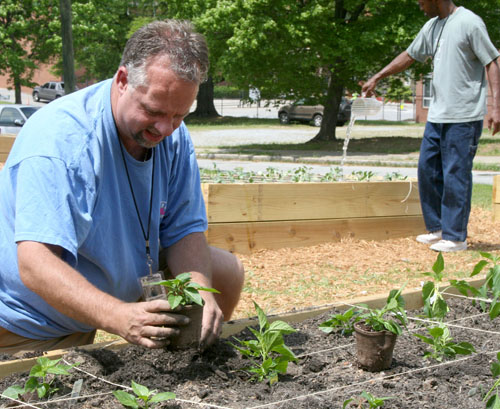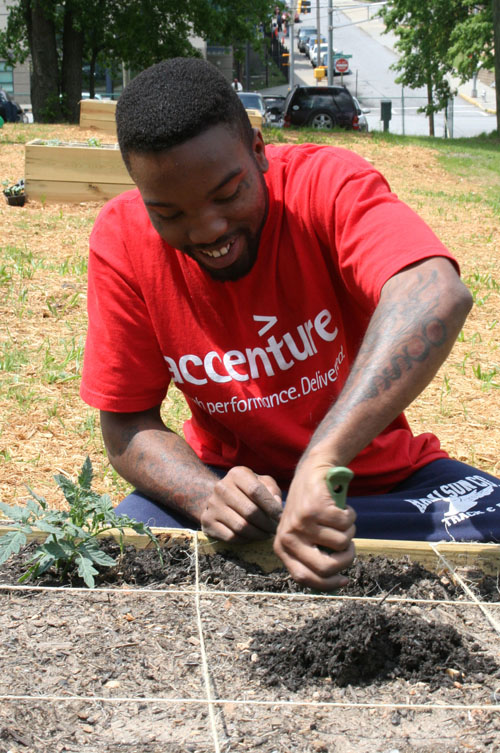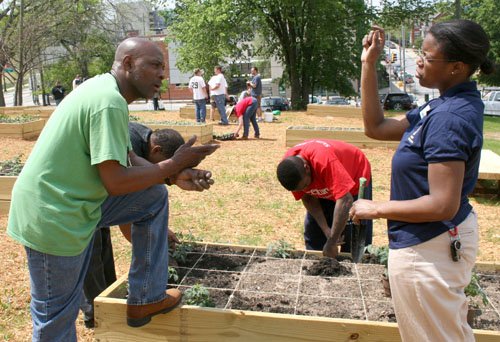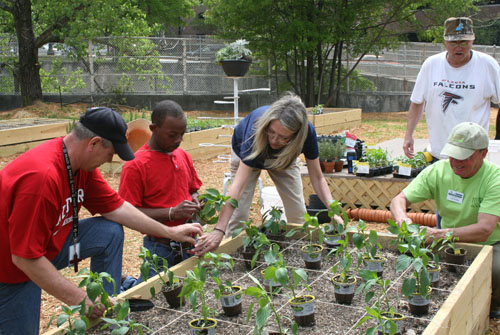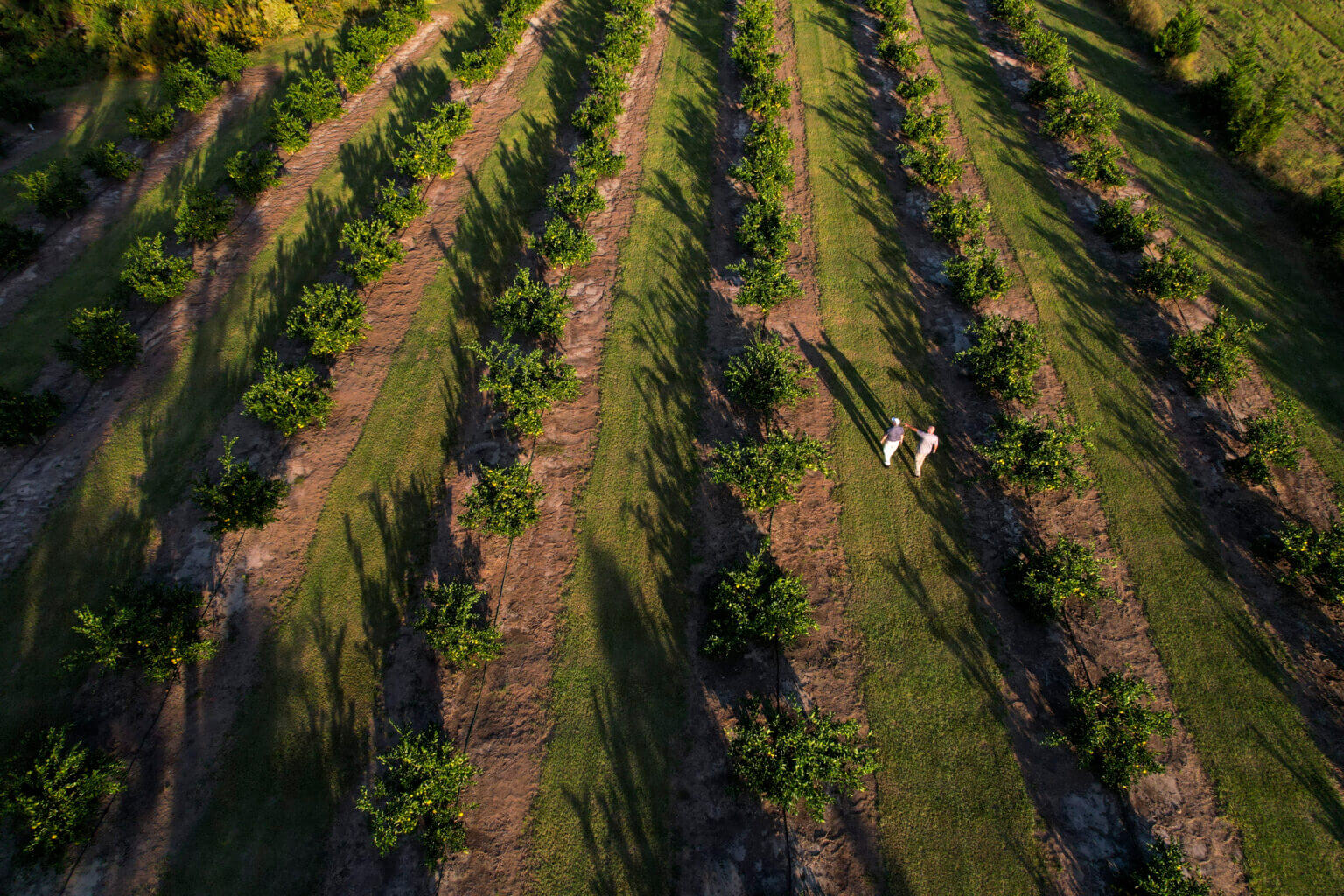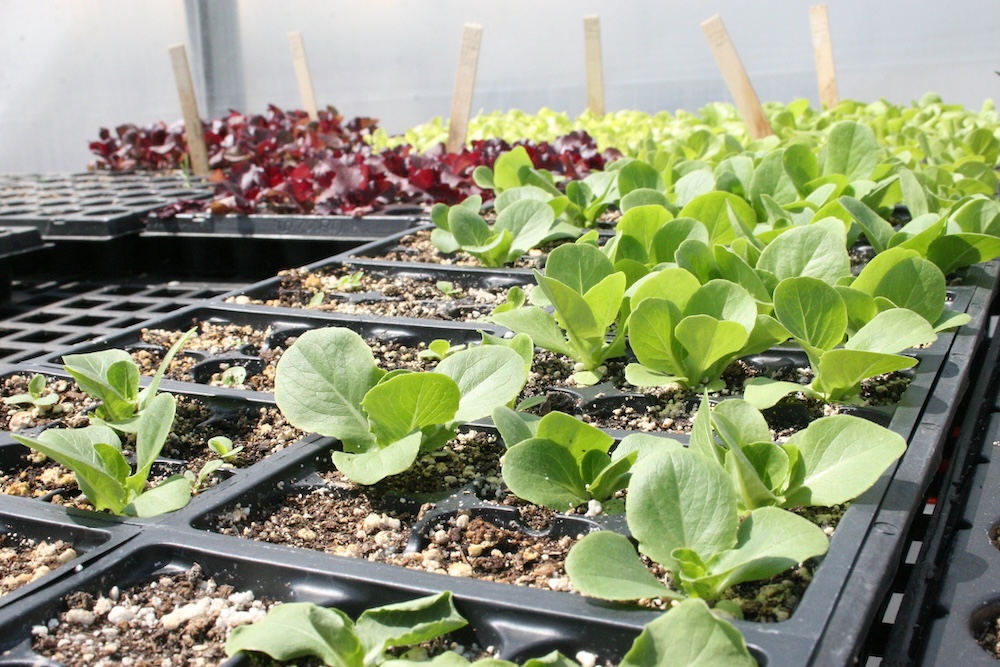Looking over the tomato, okra, cucumber, squash and pepper plants, Joel Cooper is proud. The 46-year-old recovering addict is happy, too, to get his life back on track and for the opportunity to help others like him eat and live a little better.
Cooper, and the other men who rely on the Atlanta Mission for food, will soon be eating fresh produce they’ve grown at the place they call their temporary home.
Vegetables aren't calorie high
“Unfortunately, most of the food that’s donated to the mission is high-calorie breads and pastries,” Cooper said, rubbing his stomach. “I’m grateful, but I didn’t get this from eating vegetables.”
Cooper says the garden keeps him busy and gives him a reason to be outside. “I’m actually enjoying watering the plants and pulling weeds,” he said. “And it’s a good feeling knowing and seeing that I’m giving back to the mission and helping feed the men in my program as well as the homeless that come to the mission to eat.”
After watering the plants and checking them for diseases and insects, the men often take their morning coffee on a bench in the garden.
Learning a marketable skill
The garden isn’t just growing fresh vegetables for the mission’s kitchen, said Louise Estabrook, the University of Georgia Cooperative Extension agent in Fulton County. It’s teaching the men a new skill and providing them “horticultural” therapy.
“The men now have new skill sets in agriculture and gardening,” Estabrook said. “They’ve been responsible for caring for other living things, and they’ve been able to connect with nature in the middle of a busy cityscape.”
Adjacent to the mission and off Ivan Allen Boulevard in the heart of Atlanta, the garden plot is on loan from Skanska, a project development and construction company. Home Depot donated plants. UGA Extension agents from Fulton County taught the men how to grow the vegetables. Private donations paid for other gardening supplies.
Feeding the homeless
Most community gardens Estabrook works with involve individuals renting plots, working the plots and personally reaping the benefits. The Atlanta Mission garden, she said, has a greater common cause.
“They are helping each other, learning and sharing and have found a point of united pride,” she said. “I feel grateful for the tiny role I had in moving this project forward.”
Michael Wyatt of Powder Springs, a mission resident and the garden’s foreman, has rekindled his passion for gardening. “My grandfather had a 26-acre farm and a produce stand at the end of the road,” he said. “And my Dad had a three-acre garden that I helped out with. I love gardening.
“My favorite part is seeing the blossoms come on the tomato and pepper plants and knowing they will soon turn to fruit, and seeing the faces of the guys in the kitchen when we take them fresh herbs,” said Wyatt, who worked in the kitchen before leading the garden project.
Wyatt proudly reports that the garden is environmentally-friendly. “We don’t use any chemical fertilizers or pesticides,” he said.
The garden has been an educational venture for Estabrook, too.
“I’ve learned that with enough hands, we can lift each other,” she said. “And gardening and caring for the earth is a common denominator amongst us all.”

